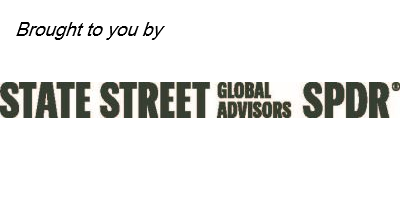BRANDED CONTENT
Diversify beyond tech: multi-sector Dow Jones ETF brings blue chips to Singapore
The SPDR Dow Jones Industrial Average ETF Trust, which is listed locally, tracks 30 prominent US companies

One advantage of investing in locally listed ETFs is the convenience of trading during regular office hours. PHOTO: GETTY IMAGES
Follow topic:
Are you keen to widen your investment in US stocks without putting too much money in the volatile technology sector? Consider investing in a Singapore-listed exchange traded fund (ETF) that tracks the Dow Jones Industrial Average (DJIA).
The DJIA, also known as the Dow, is the oldest US stock market index that is still in use today and one of the most widely quoted indicators of US stock market activity.
The price-weighted index tracks 30 prominent publicly traded blue-chip companies and is a more balanced approach to access the US economy as it places higher weightage on industries such as finance, healthcare and retail as compared with the other popular index, the S&P 500, which currently leans towards the tech sector.
The 30 stocks that make up the DJIA include household names like Goldman Sachs, Coca-Cola, Nike and Walt Disney.
The DJIA has closed at a record high 19 times so far this year1 and is up 13.7 per cent from a year ago2.
The longer-term returns are equally positive. Had you invested in the Singapore-listed SPDR Dow Jones Industrial Average ETF Trust 10 years ago, you would have made an average of 9.3 per cent per annum3 in US dollar terms.
This ETF has been listed in Singapore since 2001 with the D07 stock code.
“If you already own funds that track the S&P 500 or have a large exposure to the tech heavyweights, you should consider investing in a DJIA ETF to diversify your exposure to the US economy,” says Mr Jermyn Wong, head of intermediary, South East Asia, State Street Global Advisors (SSGA).
SSGA, which opened its Singapore office in 2000, manages the SPDR Dow Jones Industrial Average ETF Trust. The investment management division of State Street Corporation, which oversees more than US$4 trillion4 in assets globally, has three other ETFs listings in Singapore including the SPDR S&P 500 ETF Trust (S27)5.
How the DJIA differs from the S&P 500
While the DJIA and S&P 500 are both widely used proxies for the US stock market’s performance, their composition differs due to the different selection criteria.
In the case of the DJIA, a selection committee chooses the 30 component stocks after considering different factors such as the size of the company, reputation and growth history.
The committee also tries to ensure the index is representative of the broader US economy. Stocks with higher prices have a greater impact on the index’s movements.
In contrast, stock selection for the S&P 500 is determined primarily by market capitalisation, which is the total value of the companies’ shares.
As a result, of the seven prominent names that make up the S&P 500 “Magnificent6”, only Apple, Amazon and Microsoft are members of the DJIA.
Benefits of investing in the Singapore-listed DJIA ETF
ETFs track a stock index by buying the same stocks that make up the benchmark according to their weightage. If you invest in the DJIA ETF, for instance, you gain exposure to 30 different stocks via a single trade.
You can buy and sell ETFs like shares, typically through a stock broking platform, and employ traditional share trading techniques, including stop orders, limit orders and margin purchases if they are available.
Investors in ETF enjoy the benefits of diversification, including lower risk and less volatility compared to owning an individual stock.
Trading the ETF on a local stock exchange also offers several benefits for you as an investor.
“One advantage of investing in the SPDR Dow Jones Industrial Average ETF Trust is that it’s listed in Singapore, which means you trade them during office hours and keep the securities in the Central Depositary as you would with Singapore-listed shares,” says Mr Wong.
In addition, ETFs charge significantly lower fees. The SPDR Dow Jones Industrial Average ETF Trust’s management fee, for example, is just 0.16 per cent annually, compared with 2 to 5 per cent for most mutual funds. Over time, the cost savings can potentially translate into significantly higher returns.
Given that the ETF is listed in Singapore, it is subject to local regulations and protections. Hence the investment process can be easier to navigate and understand for investors based here.
“Singaporean investors can also use their Supplementary Retirement Scheme (SRS) savings to invest in the Singapore-listed SPDR Dow Jones Industrial Average ETF Trust, making it an even more attractive option for retirement planning,” adds Mr Wong.
So, if you are looking to move beyond runaway valuations in certain firms – the SPDR Dow Jones Industrial Average ETF Trust provides a well-rounded way to tap into the world's largest economy by focusing on established companies across diverse sectors.
Learn how to invest in 30 blue-chip US companies from Singapore.
Footnotes
1 Source: Factset, S&P Dow Jones.
2 Source: Factset, S&P Dow Jones.
3 As at end-30 June 2024
4 This figure is presented as of June 30, 2024 and includes ETF AUM of $1,393.92 billion USD of which approximately $69.35 billion USD is in gold assets with respect to SPDR products for which State Street Global Advisors Funds Distributors, LLC (SSGA FD) acts solely as the marketing agent. SSGA FD and State Street Global Advisors are affiliated. Please note all AUM is unaudited.
5 The SPDR® S&P 500® ETF (SPY) is a U.S. domiciled ETF. The Singapore domiciled SPDR® S&P 500® ETF Trust (S27) was first listed on the SGX on 4/05/2001.
6 The Magnificent 7 refers to Microsoft, Apple, Nvidia, Alphabet, Amazon, Meta and Tesla which are among the world’s most valuable companies by market capitalization. All seven companies are constituents of the S&P 500.
1 Source: Factset, S&P Dow Jones.
2 Source: Factset, S&P Dow Jones.
3 As at end-30 June 2024
4 This figure is presented as of June 30, 2024 and includes ETF AUM of $1,393.92 billion USD of which approximately $69.35 billion USD is in gold assets with respect to SPDR products for which State Street Global Advisors Funds Distributors, LLC (SSGA FD) acts solely as the marketing agent. SSGA FD and State Street Global Advisors are affiliated. Please note all AUM is unaudited.
5 The SPDR® S&P 500® ETF (SPY) is a U.S. domiciled ETF. The Singapore domiciled SPDR® S&P 500® ETF Trust (S27) was first listed on the SGX on 4/05/2001.
6 The Magnificent 7 refers to Microsoft, Apple, Nvidia, Alphabet, Amazon, Meta and Tesla which are among the world’s most valuable companies by market capitalization. All seven companies are constituents of the S&P 500.
Important risk disclaimers
State Street Global Advisors Singapore Limited (“SSGA”), 168, Robinson Road, #33-01 Capital Tower, Singapore 068912 (Company Reg. No: 200002719D, regulated by the Monetary Authority of Singapore). T: +65 6826-7555. F: +65 6826-7501.
State Street Global Advisors Singapore Limited (“SSGA”), 168, Robinson Road, #33-01 Capital Tower, Singapore 068912 (Company Reg. No: 200002719D, regulated by the Monetary Authority of Singapore). T: +65 6826-7555. F: +65 6826-7501.
All forms of investments carry risks, including the risk of losing all of the invested amount. Such activities may not be suitable for everyone.
The prospectus in respect of the offer of the units (the "Units") in the SPDR® Dow Jones Industrial Average ETF Trust / the SPDR® S&P 500® ETF Trust (the "Fund") is available and may be obtained upon request. Investors should read the prospectus before deciding whether to acquire Units in the Fund. The value of Units and the income accruing to such Units may fall or rise. Brokerage commissions and ETF expenses will reduce returns. Units in the Fund are not obligations of, deposits in, or guaranteed by, SSGA or any of its affiliates. An investment in Units is subject to investment risks, including the possible loss of the principal amount invested. Such activities may not be suitable for everyone. Past performance figures are not necessarily indicative of future performance of the Fund. Investors have no right to request SSGA to redeem their Units while the Units are listed. It is intended that holders of Units may only deal in their Units through trading on the Singapore Exchange Securities Trading Limited ("SGX-ST") or NYSE Arca Inc. (“NYSE Arca”). Listing of the Units on the SGX-ST or the NYSE Arca does not guarantee a liquid market for the Units. This advertisement or publication has not been reviewed by the Monetary Authority of Singapore.
Diversification does not ensure a profit or guarantee against loss.
References to specific company stocks should not be construed as recommendations or investment advice. The statements and opinions are subject to change at any time, based on market and other conditions.
Frequent trading of ETFs could significantly increase commissions and other costs such that they may offset any savings from low fees or costs.
The information provided does not constitute investment advice and it should not be relied on as such. It should not be considered a solicitation to buy or an offer to sell a security. It does not take into account any investor's particular investment objectives, strategies, tax status or investment horizon. You should consult your tax and financial advisor.
For more risk information, please visit www.ssga.com/sg .


